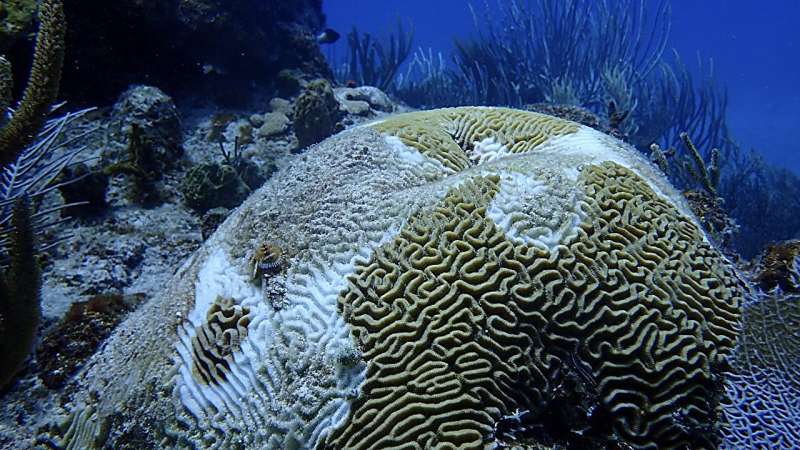Coral reefs, often referred to as the rainforests of the sea, are among the most diverse and productive ecosystems on Earth. However, these vital marine habitats are facing unprecedented threats from climate change, pollution, diseases, and extreme weather events. Monitoring the health of coral reefs is crucial for understanding and mitigating these threats, but traditional methods have limitations in providing real-time insights. In a groundbreaking study led by researchers from the Woods Hole Oceanographic Institution (WHOI), the use of environmental DNA eDNA analysis has emerged as a powerful tool for assessing coral reef health. This article delves into the innovative research that is revolutionizing our understanding of coral reef ecosystems and their microbial inhabitants.
The Microbial World of Coral Reefs: Microorganisms play a pivotal role in coral reef ecosystems, contributing to nutrient cycling, organic matter recycling, and overall ecosystem functioning. Just as the human gut harbors a complex microbial community essential for health, coral reefs rely on microorganisms to maintain their ecological balance. Understanding the dynamics of these microbial communities is key to unraveling the intricacies of coral reef health.
The Study: Tracking Coral Reef Disturbances with eDNA: The WHOI study, led by Cynthia Becker and Amy Apprill, focused on examining microbial communities in coral reef water samples collected from the U.S. Virgin Islands over a span of seven years. This longitudinal study captured periods of significant disturbance, including hurricanes and coral disease outbreaks. By analyzing eDNA extracted from seawater samples, researchers gained insights into how coral reef disturbances impact microbial diversity and composition.
Unraveling the Impact of Hurricanes and Coral Disease: Hurricanes Irma and Maria in 2017, followed by the stony coral tissue loss disease outbreak in 2020, served as natural experiments to investigate the responses of coral reef microbes to environmental stressors. The study revealed increases in ammonium concentration and declines in Prochlorococcus bacteria—a key photosynthetic microorganism—in response to these disturbances. These findings highlight the sensitivity of microbial communities to changes in nutrient availability and environmental conditions.
The Role of Prochlorococcus and Carbon Cycling: Prochlorococcus, a ubiquitous marine bacterium, plays a crucial role in coral reef ecosystems by contributing to carbon fixation and oxygen production through photosynthesis. The decline of Prochlorococcus observed during coral reef disturbances underscores the interconnectedness of microbial processes and coral health. Understanding the dynamics of these microbial players is essential for predicting and mitigating the impacts of environmental stressors on coral reefs.
eDNA: A Window into Real-Time Reef Health: Environmental DNA analysis offers a non-invasive and high-throughput approach to monitoring coral reef health in real time. By sequencing microbial DNA from seawater samples, researchers can rapidly assess changes in microbial community structure and detect early signs of ecosystem disturbance. This proactive approach enables scientists to intervene and implement targeted conservation strategies to safeguard coral reef ecosystems.
Implications for Conservation and Restoration Efforts: The insights gained from eDNA analysis have significant implications for coral reef conservation and restoration efforts. By leveraging microbial indicators of ecosystem health, researchers can assess the effectiveness of conservation interventions and track the progress of reef restoration initiatives. Integrating eDNA analysis into existing monitoring frameworks enhances our ability to make informed decisions and prioritize conservation actions for vulnerable coral reef ecosystems.
The utilization of eDNA analysis represents a paradigm shift in our approach to studying coral reef ecosystems. By harnessing the power of microbial genomics, researchers can unlock the secrets of reef health and resilience in ways never before possible. As coral reefs face escalating threats in an era of rapid environmental change, innovative tools like eDNA analysis offer hope for preserving these invaluable marine habitats for future generations. Through collaborative research and conservation efforts, we can work towards a sustainable future where coral reefs thrive in harmony with their microbial allies.
